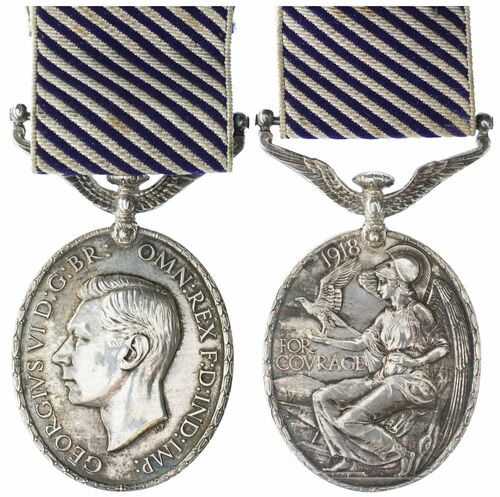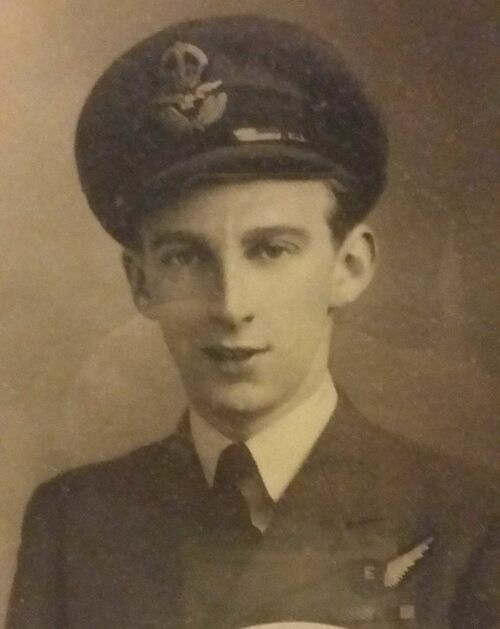Auction: 24001 - Orders, Decorations and Medals
Lot: 224
(x) A 1943 D.F.M. awarded to Flight Sergeant J. H. Wright, No. 43 Squadron, Royal Air Force later Flight Lieutenant, a Halton Apprentice whose budding career was cut tragically short when he died of Polio on the North-West Frontier in 1946
Distinguished Flying Medal, G.VI.R. (572802. F/Sgt. J. H. Wright. R.A.F.), on its investiture pin, good very fine
D.F.M. London Gazette, 15 October 1943, the original citation states:
'Flight Sergeant Wright, as a Flight Engineer, has taken part in 43 operational sorties against the enemy. His targets include the heavily defended areas of Hamburg, Essen, Cologne and Dusseldorf. On two occasions over Essen and Hamburg, his aircraft was damaged by heavy flak and Flight Sergent Wright's skill and quick action enabled the Captain to complete the operation and bring the aircraft safely back to base. This N.C.O. is strongly recommended for the award of the Distinguished Flying Medal.'
John Harry Wright was born at Knaresborough, Yorkshire on 22 March 1920, the son of John and Minnie Wright of East Boldon, Durham. Joining R.A.F. Halton as an apprentice with the 36th Entry he served as a Flight Sergeant during the Second World War. Specialising as a Flight Engineer Wright was attached to the 83rd Squadron, with whom he amassed a total of 255.55 flying hours.
No. 83 Squadron went into action on the first day of the Second World War, carrying out a sweep over the North Sea looking for German warships. The squadron continued with 'precision' raids against German naval and coastal targets but as the daylight operations became more costly, Bomber Command switched to night operations. The squadron flew against concentrations of invasion shipping in the Channel Ports in the late summer and autumn of 1940, with a raid on Antwerp on the night of 15 September resulting in the award of a Victoria Cross to Flight Sergeant John Hannah, a wireless operator and gunner for extinguishing a serious fire despite severe burns. In December 1941, the squadron was re-equipped with Avro Manchesters but due to their underpowered and unreliable engines these were quickly replaced by Avro Lancasters.
The squadron was transferred to the No. 8 Group Pathfinder Force at RAF Wyton, operating as a marker unit for the main force of Bomber Command in August 1942. No. 83 Squadron was returned to No 5 Group at RAF Coningsby in April 1944, where it became the Pathfinder unit for independent operations by the Group.
Alongside the award of the D.F.M. for his tireless work Wright was commissioned Pilot Officer dated 16 August 1943 and given the new number 53190. Originally posted to the General Duties Branch he later joined the accounts branch where he was advanced Flight Lieutenant in 1945. Posted to the North-West Frontier with 1359 (Transport) Flight he was still in service there when he went into No. 10 R.AF. General Hospital. Wright was found to be suffering from Polio, he died the day after he was admitted on 25 April 1946 and was buried at Karachi War Cemetery; sold together with copied census data, Allied Airmen Roll of Honour transcription, London Gazette entries as well as a Commonwealth War Graves Certificate, R.A.F. Commands printout and citation.
Subject to 5% tax on Hammer Price in addition to 20% VAT on Buyer’s Premium.
Sold for
£1,400
Starting price
£900







